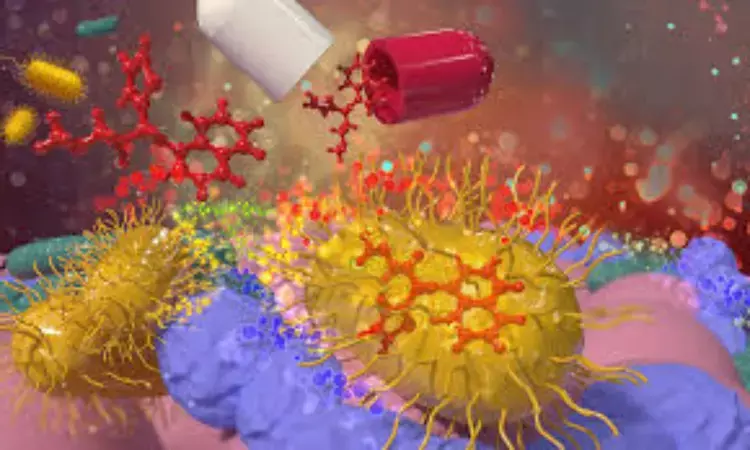- Home
- Medical news & Guidelines
- Anesthesiology
- Cardiology and CTVS
- Critical Care
- Dentistry
- Dermatology
- Diabetes and Endocrinology
- ENT
- Gastroenterology
- Medicine
- Nephrology
- Neurology
- Obstretics-Gynaecology
- Oncology
- Ophthalmology
- Orthopaedics
- Pediatrics-Neonatology
- Psychiatry
- Pulmonology
- Radiology
- Surgery
- Urology
- Laboratory Medicine
- Diet
- Nursing
- Paramedical
- Physiotherapy
- Health news
- Fact Check
- Bone Health Fact Check
- Brain Health Fact Check
- Cancer Related Fact Check
- Child Care Fact Check
- Dental and oral health fact check
- Diabetes and metabolic health fact check
- Diet and Nutrition Fact Check
- Eye and ENT Care Fact Check
- Fitness fact check
- Gut health fact check
- Heart health fact check
- Kidney health fact check
- Medical education fact check
- Men's health fact check
- Respiratory fact check
- Skin and hair care fact check
- Vaccine and Immunization fact check
- Women's health fact check
- AYUSH
- State News
- Andaman and Nicobar Islands
- Andhra Pradesh
- Arunachal Pradesh
- Assam
- Bihar
- Chandigarh
- Chattisgarh
- Dadra and Nagar Haveli
- Daman and Diu
- Delhi
- Goa
- Gujarat
- Haryana
- Himachal Pradesh
- Jammu & Kashmir
- Jharkhand
- Karnataka
- Kerala
- Ladakh
- Lakshadweep
- Madhya Pradesh
- Maharashtra
- Manipur
- Meghalaya
- Mizoram
- Nagaland
- Odisha
- Puducherry
- Punjab
- Rajasthan
- Sikkim
- Tamil Nadu
- Telangana
- Tripura
- Uttar Pradesh
- Uttrakhand
- West Bengal
- Medical Education
- Industry
Gut microbiome composition in infancy may help diagnose future type 1 diabetes

Sweden: A recent study has found the presence of microbial biomarkers for type 1 diabetes (T1D) in children as young as one year, as reflected in the functional and taxonomic differences of the gut microbiome.
Based on their findings, published in Diabetologia, the study authors suggest that the possibility of preventing type 1 diabetes onset by altering or promoting a 'healthy' gut microbiome is appealing.
The study found that gut microbiome composition, evaluated through stool samples of 1-year-old children who eventually developed type 1 diabetes versus those who did not, may help identify infants at an increased risk of developing type 1 diabetes.
Autoantibodies are known to be traditional markers for developing type 1 diabetes. Malin Bélteky, Crown Princess Victoria's Children's Hospital, Region Östergötland, Linköping, Sweden, and colleagues identified gut microbial biomarkers in 1-year-old infants linked with future T1D up to 20 years prior to diagnosis.
The researchers enrolled infants from the All Babies In Southeast Sweden (ABIS), a longitudinal general population cohort that provided a stool sample at a mean age of 12.5 months. Researchers analyzed data from babies born between October 1997 and October 1999. Samples (268 healthy controls, 16 with future type 1 diabetes) were subjected to 16S rRNA (ribosomal RNA) and quantitative PCR.
An assessment of microbial differences at the taxonomic and core microbiome levels was done. Functional content as predicted from the 16S rRNA amplicons using PICRUSt. The investigators analyzed 16 infants with a future type 1 diabetes diagnosis at a mean age of 13.3±5.4 years and 100 iterations of 32 matched control infants, who remained healthy until 20.
The authors reported the following findings:
- Eubacterium and Parasutterella were more profuse in healthy control infants, while Porphyromonas was more abundant in infants with a future T1D diagnosis.
- Ruminococcus was a strong determinant in distinguishing both control infants and those with future type 1 diabetes using random forest analysis and had differing trends of abundance when comparing control infants and those with future type 1 diabetes.
- UBA1819 and Flavonifractor were the most potent factors for differentiating control infants, showing a higher abundance in control infants than those with future type 1 diabetes.
- Fusicatenibacter (mixed abundance patterns when comparing case and control infants) and Alistipes (more abundant in control infants) were the strongest factors for differentiating future type 1 diabetes.
- Predicted gene content concerning pyruvate fermentation and butyrate production was differentially seen to be higher in healthy control infants.
"Our findings suggest that microbial biomarkers for T1D may be present as early as one year of age, as indicated in the microbial communities' taxonomic and functional differences," the researchers wrote. "The possibility of disease onset prevention by altering or promoting a 'healthy' gut microbiome is appealing."
Reference:
Bélteky, M., Milletich, P.L., Ahrens, A.P. et al. Infant gut microbiome composition correlated with type 1 diabetes acquisition in the general population: the ABIS study. Diabetologia (2023). https://doi.org/10.1007/s00125-023-05895-7
Dr Kamal Kant Kohli-MBBS, DTCD- a chest specialist with more than 30 years of practice and a flair for writing clinical articles, Dr Kamal Kant Kohli joined Medical Dialogues as a Chief Editor of Medical News. Besides writing articles, as an editor, he proofreads and verifies all the medical content published on Medical Dialogues including those coming from journals, studies,medical conferences,guidelines etc. Email: drkohli@medicaldialogues.in. Contact no. 011-43720751


